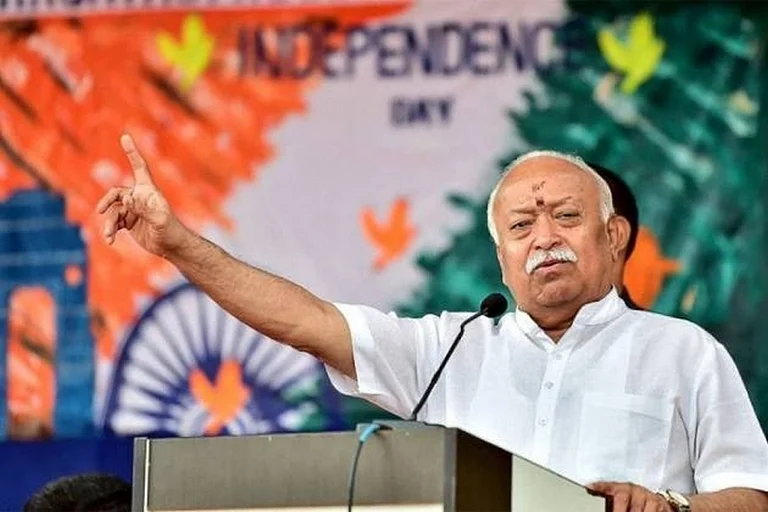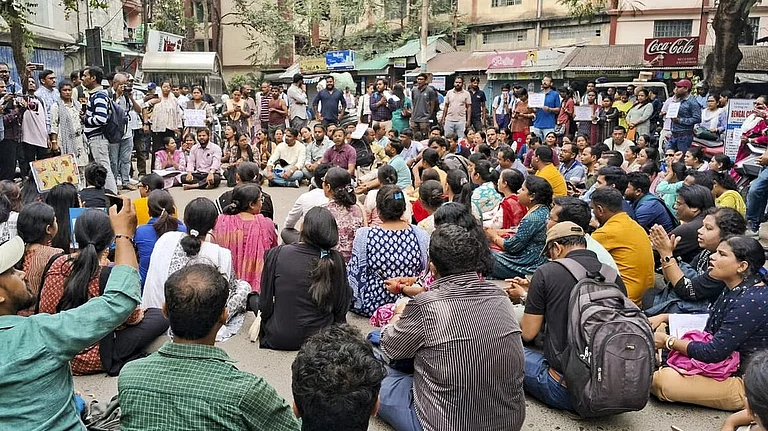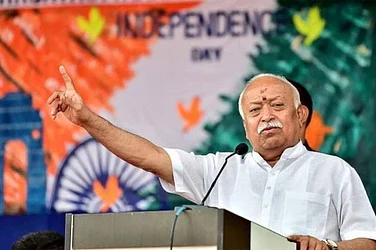A Sindhi in Goa
I am Jack Ajit Sukhija. Believe it or not, I am Goan. Three of my grandparents were Goans and Catholic by religious orientation. My paternal grandmother, Donna Tsushima Silveira Valles Sukhija, was a bhatkanni (landlady). She was also a doctor who joined the British India Army, where she met my grandfather, Col. Chamanlal Sukhija. They decided to settle in Goa.
That is often the long-winded explanation I have to offer in order to justify my culturally diverse lineage, especially to those who tend to caricature Goa and its denizens based on loosely crafted characters in movies and in popular media. And yes, you will not find me in Raj Kapoor’s Bobby or the 2013 film Go, Goa, Gone.
ALSO READ: Tears Of The Mermaid: The Melancholy Of Goa
I do not consider myself a victim of the stereotypical image which people have about Goa and the people who live here. It’s just the way it is. But now, I do possess an aspiration to sit in my planter’s chair, a wood and wicker slouch-inducing seat with long leg rests, and watch the world go by me at some point of time, in the true spirit of sussegado. Twenty years back, I wasn’t like this. Neither was Goa.
Heritage House
In 2002, I was a freshly-minted MBA from the Goa Institute of Management and had plunged headlong into my family business as a partner in Tan Estates, which owns three heritage buildings as hotels/inns in Fontainhas, namely Panjim Inn, Pousada and Peoples. We tied up with the WelcomHeritage hotels group in 2010.
The Panjim Inn, located in the state capital’s picturesque Fontainhas area, was our family’s first hospitality venture. The origins of the house, where Panjim Inn is now located, go back to the 1880s. It belonged to Dona Tsushima, my grandmother. In the 1980s, father, now in his mid-70s, decided to convert the house into a heritage hotel. People frowned at the very idea then. Fontainhas in the 80s was seen as a part of Panaji, which had passed its sell-by date; just an urban space where the administrative machinery of the state functioned from.
Financing a heritage hotel project was also a major challenge in the 80s, with nationalised banks making you run pillar-to-post for funding. Finally, it was a co-operative bank which granted a loan for the restoration, with our family home as collateral. But my father had just quit his corporate job. He had time on hand and kept unceasingly plugging on with the project. He spent his time sourcing the best period furniture, which was not in vogue or commercially valued, but was still difficult to source. He’s kept at it for decades now, putting all the pieces of the heritage jigsaw together to assemble the hotel, which decades later is now, dare I say, part of Panaji heritage.
As my father tinkered with building the heritage hotel of his dreams, tourism started blossoming in Panaji in the 1990s. Politically, Panaji elected an Indian Institute of Technology alumnus in Manohar Parrikar as a legislator in 1994. This was the first time that the BJP had made its presence felt in state politics. By late 1990s, the first of the casinos made their presence in Panaji, leading to a steady trickle of tourists spilling into the city. And the forgotten quarter of Fontainhas came under popular spotlight.
Lonely but crowded
My father’s perseverance paid off, when in the mid-2000s, the Lonely Planet described the Panjim Inn as one of the very reasons why the Fontainhas is a highlight of Goa. Along with Panjim Inn, Fontainhas has also landed on the list of places to go in Goa. The tourist footprint has widened tremendously, so much so that residents of the area have put up signs urging people not to use their homes as exotic backdrops for their incessant Insta stories. The narrow lanes of Fontainhas are also choc-a-bloc with restaurants, cafes, bars, film shoots on the streets and social media influencers haunting you at every turn.
Running a heritage home like Panjim Inn is always a work in progress. At least 20 per cent of our earnings are pumped back into repairs and maintenance, with the shadow of remodelling the core structure always looming in the background. Sometimes, I feel that Panaji too needs an overhaul, not just a makeover. It needs to reclaim the fields, khazan lands, mangroves and salt pans, which once girdled its outskirts. The city needs an overhaul from the chaos which it has come to resemble. Or perhaps Panaji just needs to plonk herself in a planter’s chair for a spell, and watch time and the Mandovi flow by.
ALSO READ
Jack Ajit Sukhija is a hotelier and tourism entrepreneur based in Goa






















